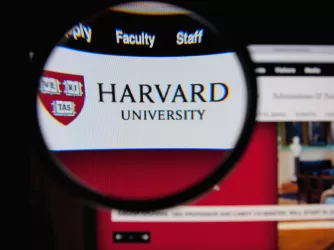Table of Contents
Faculty motion against Harvard blacklist policy kicked to committee led by policy’s architect

- Dean who drafted controversial sanctions proposal and said he would implement it will head oversight committee.
- That committee will now review a faculty motion opposing the sanctions.
- Harvard is poised to advance its discriminatory policy unchecked.
A brief flicker of hope in the ongoing saga over Harvard University’s blacklist of single-gender social organizations (which would extend to final clubs, sororities, and fraternities) was snuffed out last week when Harvard’s Faculty Council delegated a motion opposing the sanctions to a committee chaired by the very Harvard administrator who drafted the those sanctions in the first place.
Just two weeks ago, David A. Haig, a biology professor and member of that new committee, introduced the motion to the full Faculty Council. The motion opposed recommendations in a 46-page final report from the implementation committee initially charged with overseeing the rollout of Dean of Harvard College Rakesh Khurana’s proposals that were first announced in May. Haig’s motion specifically addresses the Khurana-authored measures that would force students seeking campus leadership positions, dean’s recommendations for programs such as the Rhodes and Marshall scholarships, and Harvard post-graduate fellowships to sign an oath affirming that they have not been a member of a proscribed single-gender organization for a year before signing, and will not join for a year after completing their program or leadership position.
“This faculty does not approve of Harvard College requiring a student to make an oath, pledge or affirmation about whether the student belongs to a particular organization or category of organizations,” the motion states.
Haig elaborated on the problematic policy on the blog of Harry R. Lewis, a computer science professor and former dean of Harvard College.
“I consider the requirement for such an affirmation to be a dangerous precedent,” Haig wrote.
It’s obvious why Haig would find such an oath dangerous — eerily similar as it is to the Cold War-era McCarthy committee’s notorious question “Are you now, or have you ever been a member of the Communist Party?” But the similarity is unsurprising, given Harvard’s bad history with “secret courts” and anti-Communist committees.
His motion is not to be confused with the one Lewis introduced last year, which stated that “Harvard College shall not discriminate against students on the basis of organizations they join.” The Faculty Council had been scheduled to vote on that motion in February, but Lewis withdrew it after Khurana appeared to be taking criticism of the policy seriously when he announced the new faculty committee with the power to “revise or replace” the sanctions.
Lewis’ good faith effort to work with Dean Khurana was repaid by Dean Khurana’s appointment of sanctions author Dean Khurana to chair the committee to revise the recommendations of the Dean Khurana-appointed implementation committee, “nearly all” of which Dean Khurana, only days before, had committed to accepting. (One can’t help but expect Dean Khurana, at the end of this series of events, to take off a Dean Khurana mask — Scooby-Doo-style — revealing Dean Khurana underneath.)
Unfortunately, the motion was not adopted by the Faculty Council. Instead, they voted to refer it to the aforementioned new faculty committee Khurana chairs. Regarding the Faculty Council’s reasoning, The Crimson reports:
Faculty Council member and Japanese history professor David L. Howell said he felt the motion was “premature,” given that there is now a committee tasked with considering the types of questions the motion raises.
“We understood the concerns behind the motion, but because there is this new committee that will be considering the implementation committee report, and also the policy itself, it seemed that that would be the proper place to have the discussions at this point,” he said.
Characterizing Haig’s misgivings as “premature” seems unfair, given that Haig is the only faculty member out of the 19 selected for Khurana’s new committee who had signed the previous motion opposing the sanctions and is in a position to know whether or not the committee is seriously considering revising the policy. Seeing as committee-chair Khurana already committed to implementing “nearly all” of the original recommendations, it is hardly premature for Haig to have sought oversight from the full Faculty Council.
With the Faculty Council unwilling to act to stop it, Khurana and the Harvard administration move forward with the sanctions policy, unchecked by any real oversight.
The question remains, who will step in before this malignant policy strips Harvard students of their associational rights? FIRE implores students, faculty, and alumni to recognize the danger of this policy, and to continue making noise and fighting the proposed sanctions on campus and off. If you haven’t already, visit our “Take Action” page and send a letter to Khurana and Harvard President Drew Gilpin Faust to make your objections known.
Recent Articles
FIRE’s award-winning Newsdesk covers the free speech news you need to stay informed.

Revoking Harvard’s tax-exempt status will threaten all nonprofits

Grandpa’s advice for the new wave of American censors

FIRE POLL: Only 1/4 of Americans support deporting foreigners for pro-Palestinian views
